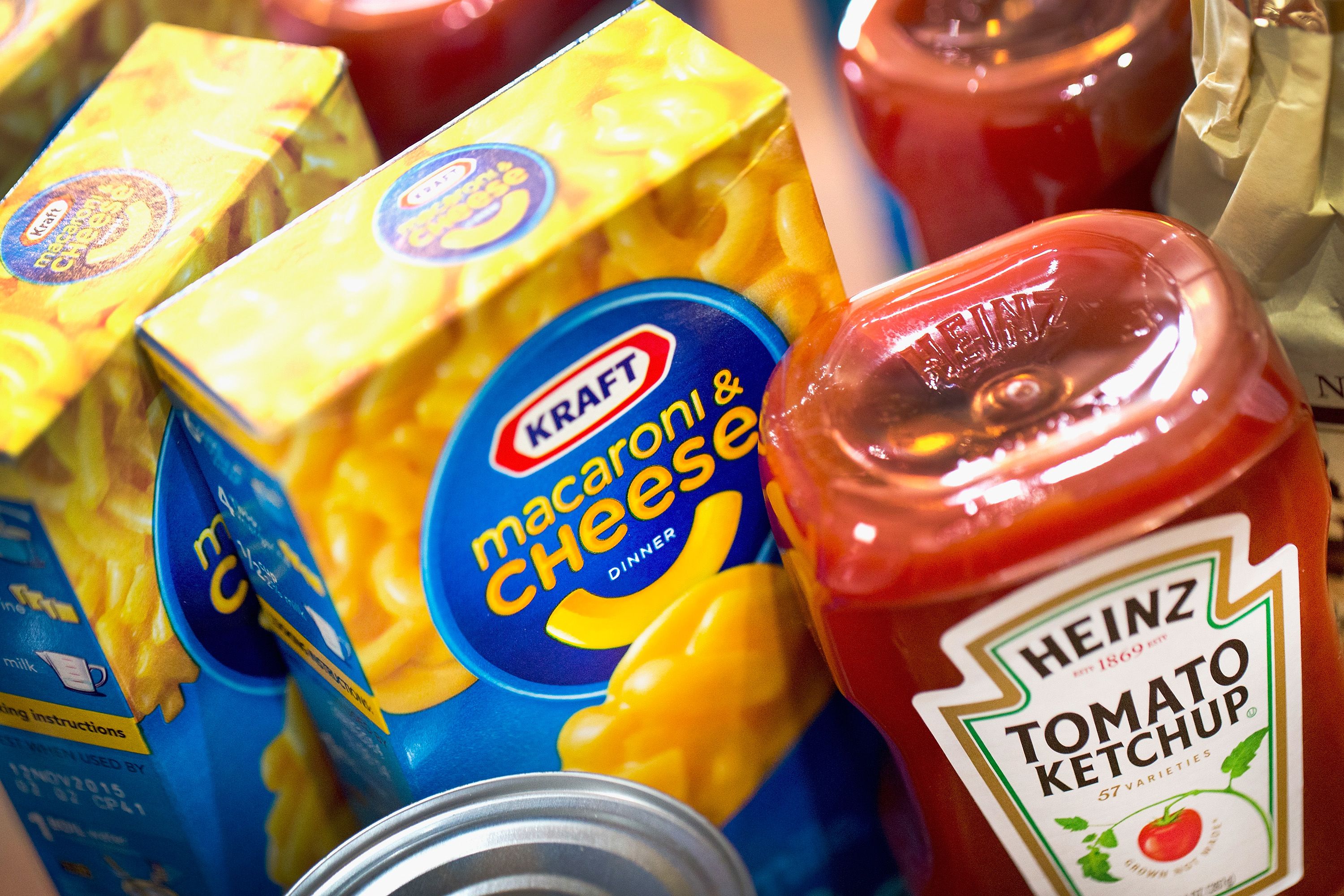BUSINESS NEWS
Misconduct at Kraft Heinz puts spotlight on pressure to meet targets
[ad_1]
Kraft and Heinz products
Scott Olson | Getty Images
It has been a brutal year for Kraft Heinz, mostly tied to its deteriorating financial performance and stock price declines that have lopped roughly $13 billion off its market value since the year began.
Now comes news that it will have to restate its financial statements for 2016 and 2017, which raises a new set of questions. These are about the company’s internal controls and the culture of a high-profile Fortune 500 company. In a filing Monday, Kraft Heinz said that following a subpoena from the Securities and Exchange Commission, it discovered employee misconduct in procurement.
That finding sparked a larger investigation that unearthed weaknesses in its accounting practices specific to its procurement contracts, which led it to discover misstatements dating back to 2016. That initial misconduct included recognizing the benefits of costs and rebates in the wrong time period, according to the filing.
Roughly a dozen employees have been reprimanded, say people familiar with the matter who spoke on condition of anonymity. Kraft Heinz spokesman Michael Mullen said that the investigation has been “substantially resolved,” and that no senior executives were implicated.
Bad actors can show up at any company, and the kinds of contracts Kraft Heinz had were complicated, say industry experts. The net charge of the broader investigation, $181 million, is a small fraction of the company’s roughly $26 billion in sales. Warren Buffett, whose Berkshire Hathaway is the company’s largest shareholder, told CNBC’s Becky Quick on Monday, “The company has my confidence.”
Still, the filing raises questions.
“Obviously, financial restatements are not supposed to happen, and while it is helpful from the company’s perspective that no senior managers were implicated, any financial restatement attributed to employee misconduct raises questions about financial incentives within the company,” said David Sterling, former chair of the litigation department at law firm Baker Botts.
For a number of former employees, executives and suppliers, the issue puts a spotlight on the company’s bonus structure that is heavily tied to making annual targets. At Kraft Heinz, the risk of that incentive structure is amplified by rapid-fire promotions of often inexperienced employees, they said.
Most of those who spoke to CNBC could not speak directly to the SEC investigation itself, but discussed the company’s broader culture at large.
Each year, Kraft Heinz as a company must meet a target for earnings before interest, taxes, depreciation and amortization for the majority of its executives to get their bonuses, which for some could more than double their salary. In 2017, nearly no one got a bonus, say former executives. That year, Kraft Heinz only grew its organic EBITDA by 3%, according to the company’s proxy, less than the minimum of 6.1%
In 2018, most executives did get at least a portion of their bonus.
As the company’s sales declined — nearly a percentage point from 2016 to 2017, according to FactSet — pressure to increase EBITDA through cutting costs ramped up. Organic sales, which strip out the impact of currency, acquisitions and divestitures, did edge slightly up the next year.
Heinz ketchup bottles on display at the 2018 Berkshire Hathaway Annual Shareholder’s Meeting.
David A. Grogan | CNBC
A large portion of that pressure fell on the procurement and operations teams, which contributed to a large percentage of the company’s cost savings — particularly as other savings stalled, said people familiar with the company’s internal operations.
Kraft Heinz does not break out its procurement costs, but from August 2013 to August 2015 it cut its sales, general and administrative expenses by $532 million, or roughly 21%.
Kraft Heinz was created when Warren Buffett’s Berkshire Hathaway and private equity firm 3G Capital in 2015 merged Kraft Foods with H.J. Heinz. The investment team previously worked together to take Heinz private two years prior.
3G has been lauded for its ability to quickly integrate deals and slash costs. In two years, it extracted roughly $1.7 billion in savings from Kraft Heinz. To help achieve those goals, it laid off thousands of employees, including those with years of experience in the consumer goods industry. None of the business unit heads in place when Kraft and Heinz merged are in the same role, and many have left.
Filling the gap were young, hungry employees that Kraft Heinz promised “Wall Street” money, should they meet their goals to help make its targets. Amid the turnover, it promoted quickly.
In 2017, it elevated 29-year-old David Knopf to be its chief financial officer. While the Princeton graduate is widely described as intelligent by his peers, he does not have the same decades of experience that typically distinguish a CFO at such a high-profile company. Knopf joined Kraft Heinz in 2015 as vice president of finance, coming from 3G Capital where he is a partner and helped with the Kraft Heinz merger.
After slightly more than a year, Knopf was named vice president of beverages and snacks, and category lead of its Planters snack nuts business.
Aggressive targets
Kraft Heinz gave employees “management-based objectives” that helped determine their bonuses for the year. Those goals are derived from the objectives laid out by the company’s board for its CEO.
“We are competing for talent with well-established, fast-moving consumer goods organizations with long histories of success. So we target a higher incentive pay than our peers and are consistently above the market,” wrote CFO Knopf in a 2018 integration update.
Not all targets are quantitative. Those that are can pertain to growth, costs and market share, among other things. The MBOs provide transparency, clear goals and prevent waste. Other companies associated with 3G, like Ab InBev and Restaurant Brands International have similar compensation models and have not run into the same issues that Kraft Heinz has.
But as Kraft Heinz’s performance has deteriorated, it has become harder to meet its goals. Outgoing CEO Bernardo Hees in 2017 only achieved 60% of his MBOs, according to the company’s proxy. Knopf achieved 48%.
In the company’s procurement group, which was crucial to the company’s EBITDA goals, pressures to meet MBOs were particularly intense.
Suppliers say Kraft Heinz employees are aggressive in demanding lower contract costs, sometimes at the sacrifice of longer-term alternatives used by peers like Unilever or Procter & Gamble. One example is pushing for extra savings in the next quarter, if a supplier in unable to do so in shorter term.
“They’re just using it as a blunt instrument, saying ‘give me 10%.’ You can’t do that, especially in a mature, consumer goods company,” said Rob Handfield, a professor of supply chain management at the University of North Carolina. Handfield advised courier company DHL in 2017 when it was negotiating its contracts with Kraft Heinz.
According to Monday’s filing, a handful of Kraft Heinz employees were marking down savings from its supplier contracts that should have been carried over a longer time period, along with other similar transgressions. It could not be immediately determined whether they did so accidentally or intentionally, but doing so can inaccurately imply they achieved certain targets that they did not reach.
Following the results of the investigation, Kraft Heinz said in the filing that it “has implemented and continues to implement certain remedial actions, including employee personnel actions and certain improvements to its internal controls, to mitigate the likelihood of this occurring in the future.”
Others changes are to restore its financial health after its shares have fallen more than 24% since the start of the year. It announced last month that Hees is stepping down on June 30 and will be succeeded by Miguel Patricio, Anheuser-Busch InBev’s former chief marketing officer. Kraft Heinz’s head of strategic projects, Eduardo Pelleissone, is also leaving the company to pursue other opportunities, effective June 30. Eduardo Luz, U.S. chief marketing and global brand officer, is leaving the company at the end of May.
Miguel Patricio
Olivia Michael | CNBC
[ad_2]
Source link













